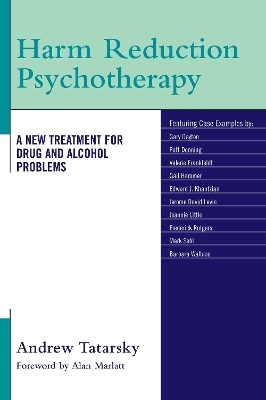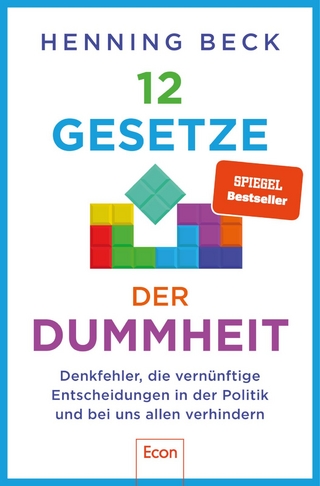
Harm Reduction Psychotherapy
A New Treatment for Drug and Alcohol Problems
Seiten
2007
Jason Aronson Publishers (Verlag)
978-0-7657-0373-6 (ISBN)
Jason Aronson Publishers (Verlag)
978-0-7657-0373-6 (ISBN)
Harm reduction is a framework for helping drug and alcohol users who cannot or do not stop completely. Smaller changes in the direction of reduced harmfulness of drug use are accepted. This book shows how these simple changes in emphasis and expectation have implications for improving the psychotherapy in many ways.
This ground-breaking volume provides readers with both an overview of harm reduction therapy and a series of ten case studies, treated by different therapists, that vividly illustrate this treatment approach with a wide variety of clients. Harm reduction is a framework for helping drug and alcohol users who cannot or will not stop completely—the majority of users—reduce the harmful consequences of use. Harm reduction accepts that abstinence may be the best outcome for many but relaxes the emphasis on abstinence as the only acceptable goal and criterion of success. Instead, smaller incremental changes in the direction of reduced harmfulness of drug use are accepted. This book will show how these simple changes in emphasis and expectation have dramatic implications for improving the effectiveness of psychotherapy in many ways. From the Foreword by Alan Marlatt, Ph.D.: “This ground-breaking volume provides readers with both an overview of harm reduction therapy and a series of ten case studies, treated by different therapists, that vividly illustrate this treatment approach with a wide variety of clients. In his introduction, Andrew Tatarsky describes harm reduction as a new paradigm for treating drug and alcohol problems. Some would say that harm reduction embraces a paradigm shift in addiction treatment, as it has moved the field beyond the traditional abstinence-only focus typically associated with the disease model and the ideology of the twelve-step approach. Others may conclude that the move toward harm reduction represents an integration of what Dr. Tatarsky describes as the “basic principles of good clinical practice” into the treatment of addictive behaviors. “Changing addiction behavior is often a complex and complicated process for both client and therapist. What seems to work best is the development of a strong therapeutic alliance, the right fit between the client and treatment provider. The role of the harm reduction therapist is closer to that of a guide, someone who can provide support an
This ground-breaking volume provides readers with both an overview of harm reduction therapy and a series of ten case studies, treated by different therapists, that vividly illustrate this treatment approach with a wide variety of clients. Harm reduction is a framework for helping drug and alcohol users who cannot or will not stop completely—the majority of users—reduce the harmful consequences of use. Harm reduction accepts that abstinence may be the best outcome for many but relaxes the emphasis on abstinence as the only acceptable goal and criterion of success. Instead, smaller incremental changes in the direction of reduced harmfulness of drug use are accepted. This book will show how these simple changes in emphasis and expectation have dramatic implications for improving the effectiveness of psychotherapy in many ways. From the Foreword by Alan Marlatt, Ph.D.: “This ground-breaking volume provides readers with both an overview of harm reduction therapy and a series of ten case studies, treated by different therapists, that vividly illustrate this treatment approach with a wide variety of clients. In his introduction, Andrew Tatarsky describes harm reduction as a new paradigm for treating drug and alcohol problems. Some would say that harm reduction embraces a paradigm shift in addiction treatment, as it has moved the field beyond the traditional abstinence-only focus typically associated with the disease model and the ideology of the twelve-step approach. Others may conclude that the move toward harm reduction represents an integration of what Dr. Tatarsky describes as the “basic principles of good clinical practice” into the treatment of addictive behaviors. “Changing addiction behavior is often a complex and complicated process for both client and therapist. What seems to work best is the development of a strong therapeutic alliance, the right fit between the client and treatment provider. The role of the harm reduction therapist is closer to that of a guide, someone who can provide support an
Andrew Tatarsky, Ph.D., holds a doctorate in clinical psychology from City University of New York. He has a private practice in New York City specializing in harm reduction psychotherapy with drug and alcohol users and is co-director, with Dr. Mark Sehl, of the Harm Reduction Psychotherapy and Training Associates, a treatment and training organization. His perspective on substance use problems has evolved over twenty years of experience working in the area as psychotherapist, supervisor, program director, teacher, writer, and public speaker. He is a founding member and Past President of the Addiction Division of the New York State Psychological Association and Chairperson of Mental Health Professionals in Harm Reduction.
| Erscheint lt. Verlag | 10.8.2007 |
|---|---|
| Verlagsort | Northvale NJ |
| Sprache | englisch |
| Maße | 155 x 232 mm |
| Gewicht | 578 g |
| Themenwelt | Geisteswissenschaften ► Psychologie |
| ISBN-10 | 0-7657-0373-4 / 0765703734 |
| ISBN-13 | 978-0-7657-0373-6 / 9780765703736 |
| Zustand | Neuware |
| Informationen gemäß Produktsicherheitsverordnung (GPSR) | |
| Haben Sie eine Frage zum Produkt? |
Mehr entdecken
aus dem Bereich
aus dem Bereich
Denkfehler, die vernünftige Entscheidungen in der Politik und bei uns …
Buch | Softcover (2023)
Econ (Verlag)
CHF 27,95


